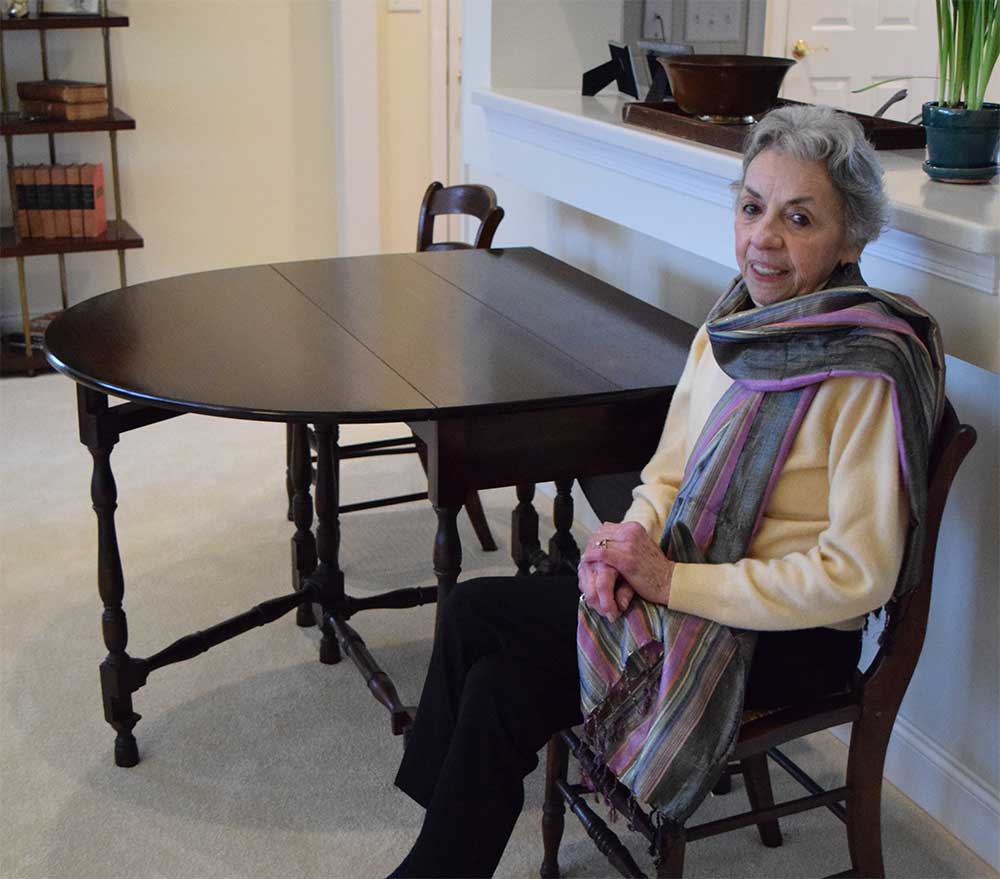Thriving while Surviving

I didn’t choose to join the fraternity of those surviving and thriving, but that’s what happened when I was diagnosed with late stage stomach cancer and successfully treated at Penn State Cancer Institute about six years ago. After a year of tests by my local gastroenterologists, searching for what they thought might be ulcers or signs of irritable bowel syndrome (IBS), they discovered a malignant tumor hiding in the wall of my stomach.
I was shocked when the surgical oncology team at Hershey Medical Center told me they would have to remove my entire stomach and part of my liver to save my life, but I could tell I was in good hands. They were always honest, but also compassionate. They told me they would aggressively treat my cancer and they were aiming for a cure, but that my life would never be exactly the same after the chemotherapy and major stomach surgery. They were right! I knew then that the road ahead would be difficult and uncertain, but what I didn’t realize was that I would discover new priorities and a depth of faith and blessings along the way that I might not otherwise have experienced.
The five months that passed between my diagnosis and surgery were a frenzy, as I tried to coordinate doctor visits, tests, scans, and blood work, underwent intense chemotherapy infusion treatments and the placement of a port into my veins for 24/7 therapy, and made a multitude of arrangements. Life seemed to move so fast, and I felt like I was on autopilot. But in the midst of it all, I realized that this very personal journey was a very big deal and that advocating for myself throughout every step of the process was going to be key if I was going to survive and thrive. This was my first blessing.
I also realized how important it was to be able to communicate openly and honestly with my doctors and surgeons—people like Dr. Niraj Gusani. I literally trusted them with my life. I always tell others living with cancer not to be afraid to ask questions, because the more you share or communicate with your medical team about what you are experiencing, the better equipped they will be to help. To this day, I still take my list of questions to every medical appointment.
With all the challenges—and there were many—I also learned how important my support “army” was before, during and after my treatment. Family, friends, fellow survivors, neighbors, people from my church, and of course my medical team, all rallied around me. It was amazing! I vividly remember the Christmas when I had no hair and my two teenage grandsons marched into my hospital room with their heads shaved to show their support. It meant the world to me. My “army” became like a shield or blanket of strength for me.
After surviving stomach cancer and getting a second chance at life, I knew I wanted to give back and help others in any way I could. I was thrilled when Dr. Gusani asked me to be part of a group of staff, patients, and advocates brought together to help improve supportive care services for cancer patients. In this way, I could be part of an “army” for others facing cancer, and I always tell patients I meet to allow their ‘army’ to march through this with them.
Now, when I look back over the last few years, I remember the challenges—things like reprogramming the computer on my chemo port, dragging a heavy feeding bag upstairs at night and making sure it was hooked up properly, and dealing with an uncomfortable and sometimes unreliable feeding tube. Memories of just how hard life was then have faded a bit over the years, and now when something difficult comes up, I focus on living life to the fullest. That’s my priority now.
Most of all, I believe in miracles and the power of prayer. What you learn and become after the experience of being given a second chance at life is exciting, painful, difficult, and also stimulating. We are the ones who can make a difference in someone’s life when they come face to face with those dreaded words, ‘you have cancer.’ And that’s a miracle in itself!
If you want to join Nancy in making a difference for other cancer patients at Penn State Cancer Institute, visit engage.pennstatehealth.org/cancer and consider making a gift to ensure that the best care, research and support services are available to help more people survive and thrive.
If you're having trouble accessing this content, or would like it in another format, please email Penn State Health Marketing & Communications.
